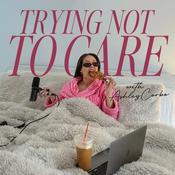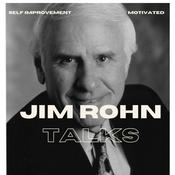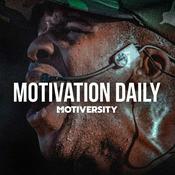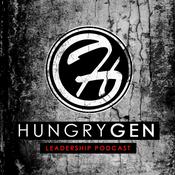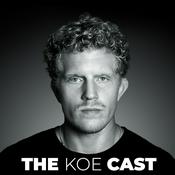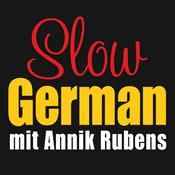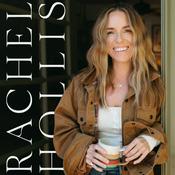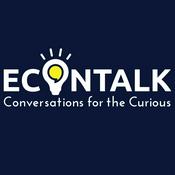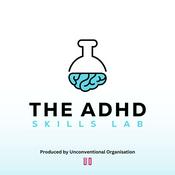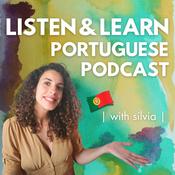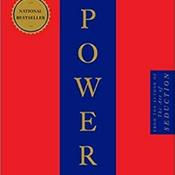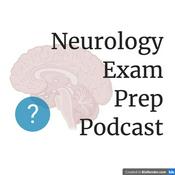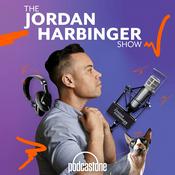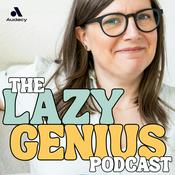Parent-Teacher Conference: Conversations on parenting teens and adolescents.
Braden Bell
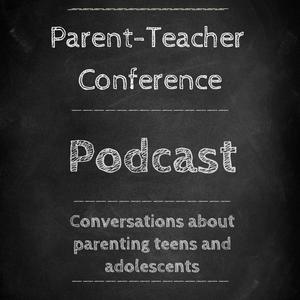
Latest episode
11 episodes
Use the wisdom of the past to help parent your kids today. Don't parent from your own traumas. Plus some thoughts on when to adjust or discard past ideas.
2025/8/16 | 18 mins.Hi Everyone! I thought I would try a format that I *think* will provide a transcript, a podcast, or video so you can, hopefully, access it in the most convenient possible format for you. Let me know what you think.
Cheers,
Braden
Great — here’s the full transcript fully formatted all the way through the end, cleaned for readability but with every word intact:
Transcript
Hey everybody, I hope you are doing well. Lovely to see you.
I want to share one of the most single helpful secrets to, I don’t know, adulting—but also just kind of getting through life when you have challenging things. And this is gonna maybe seem strange for a second, but follow me and I think it’ll hopefully make sense. **Note: I used an AI service to transcribe the video and put it into a hopefully-readable-format.
Transcript
Hey everybody, I hope you are doing well. Lovely to see you.
I want to share one of the most single helpful secrets to, I don’t know, adulting—but also just kind of getting through life when you have challenging things.A And, I would say that parenting is both of those things.
This is gonna maybe seem strange for a second, but follow me and I think it’ll hopefully make sense.
Overalls
So, I’m a big gardener, as I think you know if you follow me at all. And I do a lot of work out in the yard and it’s such a pain. I’ll get like jeans or kind of work clothes on and then I go out. But gosh, I was always having to stand up and pull my pants up or adjust the belt or this or that. It was such a pain and it made it hard to get work done.
I just remember thinking, gosh, I wish there was something that could attach my jeans. I wish I just had a one-piece pair of jeans that wouldn’t fall down. And at that point it hit me: oh yes, they’ve invented these. They’re called overalls. This is what farmers wear and other people who are out doing a lot of manual labor.
I got some overalls. It’s not the greatest aesthetic for me, but it works really well. And now I’m not always trying to hitch my belt up or pull my pants up or whatever.
Nightcap
Second thing: I get really, really cold at night—freezing. And my wife tends to be hot at night. I’ve always kind of felt like if you’re cold, you can always add more; if you’re hot, you can’t. So I feel like it’s the responsibility of the cold person to just add more layers.
But one night it was really, really cold, and I just couldn’t sleep. So I put a hoodie on because I wanted to have my head covered. And I did that, and it was miserable sleep because the hood kept my head warm but it’s very constricting and confining—even a loose hoodie. So that didn’t work out so well.
I remember thinking, gosh, if only there’s a lightweight head covering that I could wear—some kind of cap I could wear at night in bed—just to give me the little extra warmth to keep the body heat in. Maybe it could even slide off in the middle of the night, but it wouldn’t encumber me or make me feel all twisted.
Oh yeah—guess what? They invented those too. It’s called a nightcap, and people wore them for hundreds of years. So I bought a nightcap. Again, it’s not a great aesthetic—don’t get me wrong, I’m not bragging about my look here—but it’s really effective. And it’s so great.
Hats and Heat
Okay, recently my hair started thinning and the dermatologist said, “If you’re out in the sun you need to wear a hat, or you need to put sunblock on.”
Well, I’m not gonna like put sunblock on my hair—that’s just weird and gross. So I’ve worn a hat. Baseball cap, I like it, but man, they’re hot. Plus it kind of has an informal feel; I don’t feel like it always fits every occasion. It’s like, gosh, if only they had lightweight hats that let the heat out of your head so they don’t hold the heat in but still keep your head protected.
Oh! Straw. Actually, I already had a straw hat because I had this discovery years ago when I was working in the yard. So now I wear a straw hat almost whenever I’m out in the sun, or in the winter, a heavier hat.
Linen Suits
All right, also: super hot. I have to be outside a lot in my new position at work. I have to stand out in the morning for morning drop-off. It’s really hot.
Well, turns out that southern men have worn linen suits for a long time. Southern men wear linen, seersucker, etc.—suits and shirts—and it’s kind of been done for a long time. Turns out it’s really, really cool. It works very well in the heat and it’s very comfortable. So I started doing that.
Lessons From the Past
Here’s the point: almost everything in our society… there are thousands and tens of thousands of years of people who’ve already done this the hard way, who’ve learned through experience. And because of that, we have customs and traditions and sometimes kind of folk wisdom and maybe even old “wives’ tales”—can we say that anymore? Old spouses’ tales? Anyway.
We live at a time when I feel like there’s almost this instinct to just get rid of it. If it’s something that you heard from your parents or your grandparents, it’s like, “Nah, can’t be right. The world’s different.”
There’s kind of an arrogance in that, to be honest, in my opinion. Because yeah, some things are different for sure—but the fundamentals really haven’t changed that much in many ways.
Not everything should be kept. There are things we should discard. Parenting practices, for example—we know more now, we should do different, we should raise our kids differently. However, that doesn’t mean we throw everything out.
Chesterton’s Fence
So here’s my suggestion: try to learn about the traditions of the past. Learn about the ways people used to do things. And then understand why. Once you understand why, you can decide to keep it or not. It may be perfectly fine to discard—that is a very natural and acceptable part of growth and change. Evolution.
My dad talks about when he was a kid, it was just like, you know, if you made an adult mad, they just kind of give you a backhand and tell you to shut up. No one cared about his feelings. Teachers too—literally no one.
Now, I think we may have come, in correcting that, a little bit too far, perhaps. But at any rate, I’m not saying knock your kids around. What I am saying is this: G.K. Chesterton, the English author, had a really good thought experiment.
He said there’s a certain kind of reformer that when they see a fence in the woods or in the country, they just say, “Tear down this fence. It no longer serves a purpose. What is it doing here anyway? It doesn’t belong here. Just get rid of the thing.”
But you don’t do that until you actually know why the fence was put there. It’s entirely plausible that there is a reason the fence was there. So you can tear the fence down, no problem, but you need to know why it’s there. Once you understand the function—why someone put this fence there—they probably weren’t crazy, weren’t stupid, weren’t evil.
It may be that the fence is no longer serving its purpose. Fine. Or maybe the fence could be replaced by something sleeker, less intrusive, sturdier—any number of things. But don’t just throw things out. Think about it carefully.
Parenting and Trauma
I’d say especially this: it’s really important that we not parent from our own traumas.
And what I mean by that is—we all have them. Even if you had really loving, caring parents, chances are you’ve got some wounds, some baggage you’re carrying around. Happens with the best of parents.
I know my parents had baggage from their parents. I have some baggage from them, and undoubtedly my children have baggage from me. Ideally, we can try to make it so it’s not terrible baggage, but it happens.
But just because I may have some issues or some baggage with something, that doesn’t mean the principle is wrong. Maybe the execution was a little too much. Maybe my response wasn’t great. But if I’m parenting out of my traumas, I’m not parenting my children—I’m parenting myself. That’s not my job.
I need to parent them, and I need to do what’s best for them, not what would have been best for me.
The Dose Makes the Medicine
It’s an easy mistake to make. I’ve caught myself doing it sometimes. I’ve seen a lot of other people doing it and it really can be destructive. It’s just not healthy for your child.
Remember this: the difference between poison and medicine is often the dose.
For example, you may have had a parent who was really insistent on getting good grades and achieving high. Maybe that was too much. Maybe it caused stress on you. That may be true. But it’s also true that it is a good thing to try to achieve to your best potential.
It’s not good to feel pressure to achieve some arbitrary standard, but getting good grades in school, working hard—those are good things. They can be stretched too far, yes. But if you grew up carrying this baggage, this trauma, whatever—we need to use the word trauma carefully, because it has a specific meaning—we don’t do our children a favor if we just say, “Nope, I hated it, so I’m not gonna push them at all.”
That’s not healthy for the child. That is parenting yourself, not your child.
For me, it was never about the grade itself. I always told my kids: I don’t care if you work to the best of your ability and you’re not goofing around and you get a B or C. If you’re really trying, I’m okay with the grade. But I do insist that you work hard. I don’t want to hear that you’re goofing off or being lazy. That’s important.
Trial and Error of Humanity
Putting all of this together—humankind has evolved, and it’s easy to take for granted how this happens.
Think about herbs, for example. Which ones will help or heal you? Or even just edible berries. Think of all the trial and error that had to happen for humankind to get the knowledge reliably of what was safe to eat and what was not, or how it had to be prepared.
Some people died pretty painful deaths or had severe gastrointestinal distress or weird hallucinations in order for us to have that knowledge. And that’s been passed down and handed down.
White After Labor Day
So many things that seem arbitrary and weird actually had a reason. I was talking to my wife the other day—I meant to research this—but you know how often you’ll hear a really fussy old rule and it makes no sense? Like, why can’t you wear white after Labor Day?
I have no idea. But I wonder if it was this: my assumption is that this grew out of the wealthy elite in the Gilded Age, maybe, when they went away to summer in nice places. They lived in New York City, but they would go summer in Long Island or the Catskills.
NOTE: Since recording the vidoe, I researched this a bit and it turns out I was directionally correct about this rule.
From pictures I’ve seen (I could be wrong), it appears they often wore white during the summer months. Makes sense—it’s cool, it’s light. Well, traditionally summer runs from Memorial Day to Labor Day. So part of me wonders if this old rule came because they summered in whites and then after Labor Day, you went back to the city.
And you wouldn’t want to walk around New York City in whites—it’s just too dirty. So maybe that’s where it came from. A lot of etiquette and rules probably came out of those waspy early socialite classes. Could be wrong—but the point stands: often when you dig, there’s a reason and if you can learn from the reason, and not simply follow an outdated rule, it can give you tremendous parenting power!
The Ham Story
Now, sometimes it’s the opposite. There’s an old story about a young bride who was making a ham for Sunday dinner. She invited her parents over, and while preparing it, she cut off the ends of the ham.
Her husband said, “Why are you cutting the ends off?”
She said, “Because that’s how my mom did it. That’s how you make a ham.”
So they asked her mom, and she laughed: “Oh no, that wasn’t about the ham. My oven was just small. I had to cut the ends off so it would fit.”
See? Sometimes it’s just habit, not wisdom.
What We Keep and What We Discard
So you have extremes:
* Things we do with no utility at all.
* Things that once had utility but no longer do (like the white clothes rule).
* Things that are good in the right dose but may need a different approach.
* And things that really shouldn’t be thrown away, even if they are very old.
For example: adults should be adults. Adults are in charge for a reason. Children are not. They are, by definition, immature. Their brains aren’t fully formed until their 20s. Executive function doesn’t fully kick in until late 20s.
There’s this weird idea that children are somehow wiser, more pure in their passions. I just don’t think that’s true. Children don’t understand cause and effect, delayed gratification—they’re still figuring out the world and themselves.
So just because a child feels strongly about something doesn’t mean it’s the right thing. That’s why parents, teachers, coaches exist.
The Collective Wisdom
The point of all this: you don’t have to parent alone. You have tens of thousands of years of behavior, trial, and error.
Some practices weren’t good and should be discarded. Some are good but need adapting. Some don’t fit our times anymore. And some are old but should be kept.
For example, kids used to have to wake up super early to milk cows. That’s not great. We know more now about sleep. We can discard that practice. But that doesn’t mean we discard everything.
If you feel rootless, like you don’t have traditions or wisdom to draw on—find an old person. Honestly, most of us are happy to tell you how things used to be and why they were better. Listen carefully, and think about the why.
And remember: don’t parent from your baggage. Don’t parent from your trauma. That’s parenting yourself, not your child.
I hope all that makes sense. I hope it’s helpful. I’m gonna talk more later about another principle, but let me know if this format works for you.
Sometimes I want to write out a really long nuanced piece, and other times I feel like this is a nice way to share—you can read the transcript or listen to it if you’re on podcasts or whatever.
I hope it’s useful to you, and I wish you well.
Happy parenting—you’ve got this.
Sincerely,Braden
This is a public episode. If you would like to discuss this with other subscribers or get access to bonus episodes, visit bradenbellphd.substack.comYour child will spend more time as an adult than as a teen. All my kids are now adults, and. here are some things I've learned about parenting teens to become happy adults.
2025/1/03 | 10 mins.Hi Everyone!
As many of you know, I needed to take a little hiatus for some various reasons, but I'm back and planning on resuming this newsletter. I'm excited to jump back in!
I think I'm going to experiment with different formats. Since I stopped, Substack has really increased its capabilities and what it can do.
So I am going to try making videos that will automatically be uploaded as podcasts. But there will also be a transcript generated for people who prefer to read. Hopefully, that will give a format for every taste and schedule. But let me know what works best for you.
Regardless, I did wanna just do a video and quickly welcome you to 2025.
I have some really phenomenal articles of interest to parents that I'm excited to share with you.
First, however, there’s something really important that I want to share with you.
My children are all now adults (at least legally—I still have a high school senior). From Thanksgiving until now, I have had unusual opportunities to be with them, observe their lives, talk to them, and so forth.
It has really brought home something important to my mind: We are raising our children to be adults, not to be teens.
Lord willing, they will spend far more time as adults than as adolescents. That also means that our relationship with that child will include more years where they are an adult than it includes years when they were teens.
It’s easy to respond to situations and sort of move from crisis to crisis, or situation to situation during the adolescent years. But if we are wise, we will remember that the goal is not to help the kids have a smooth life in middle or high school.
Our purpose is to prepare them to be happy, productive, successful adults.
I’ve been reflecting on this idea and have some thoughts on what I think makes a difference in preparing kids to be successful adults. There are things I did well and things I wish I had done differently to this end.
You should be able to watch and/or listen here or, if you prefer, read a transcript—which is below this.
You can also listen on Apple Podcasts if you prefer:
Happy New Year—and Happy Parenting! You’ve got this.
Sincerely,
Braden
P.S. For those who are interested, I started doing a short, mostly-daily pep talk: short videos/podcasts that just serve to encourage and cheer people on, share some things that have helped me be happier, etc. If you are interested, they are on TikTok: https://www.tiktok.com/@your.internet.grandpa
You can also get them on Substack here:
https://bradenbell.substack.com/s/internetgrandpa
And as a podcast here (although I don’t post them every day; it tends to be more sporadically):
Apple Podcasts:
TRANSCRIPT:
Hi, everybody. Happy New Year. It's Braden. I am excited. I'm planning to start back up again with the Parent Teacher Conference. As many of you know, I need to take a little hiatus for some various reasons, but now I'm back and I'm planning on resuming and I'm excited to jump back in.
0:18
So I wanted to give you that news. I think I'm going to be trying some different formats, even since I stopped. Things that kind of the technical abilities and capabilities of Substack have really increased. So I'm going to probably try doing maybe more videos and less written pieces,
0:37
or maybe it'll end up being a little balance of both. Or we'll see. Maybe everyone will hate the videos and we'll go back. But we'll see how it works. Regardless, I did wanna just do a video and quickly welcome you to 2025. I have some really phenomenal articles I'm excited to share with you that I've read
0:56
over the holidays and have been saving up to share with you. Before I get to all that though, There's one thing I wanted to talk about. Over the holidays, from Thanksgiving up till now, I've had some unusual chances to interact with my own children. My youngest now is 18, and so he's a high school senior, but technically,
1:18
legally, all of my children are now adults. And it has reminded me of something that I've tried to write about before, which... But I think maybe it needs to be emphasized even more to the parents of adolescents, and that is we are raising our children to be adults, not to be teens.
1:35
We are not raising our child to be popular in middle school. We're not raising our child to be successful, like a super successful athlete or student or scholar in high school. Those are great, don't get me wrong. And being a successful athlete or being a successful scholar, whatever,
2:00
that may well help them in the next part of their life. But our goal is not to help life be smooth now. It's to help prepare them to be happy adults because that is... the way they'll spend the bulk of their life so if we succeed in helping them be
2:17
having a pretty smooth adolescence but they don't learn critical adult skills then that's not going to be a very good trade-off for them also we need to always keep in mind that the bulk of our relationship heaven willing will be with them as an adult the years we have with them as an adolescent are
2:34
pivotal and they are important, but they are the minimum, hopefully, of the number of years we'll have with our child. So keeping all those things in mind, there's a few things that have occurred to me that I feel really good about and there's things I wish I would have done differently now.
2:54
Um, and I have raised my five children, um, that, that covers a lot of years. So it's almost like I have two families in a, in a way, um, just kind of depending on the, when the culture, how the culture was happening when they were raised.
3:08
Um, my older kids didn't have smartphones because none of us had smartphones. Um, And so it was a much different world back then, for example. Here's though, I think the number one thing that your child needs, and that is that they need to learn early to take responsibility. Any number of ways I think can help.
3:30
that happened but it's critical that it happened and here's just a few key places I would suggest that this will have a huge impact on your child's life they need to do chores at home I think they should be doing their own chores like I think they
3:45
should be you know cleaning their bed cleaning their room and my wife's been good to have our kids do their own laundry for example I think that's critical. I also think they need to be doing chores that benefit just the family. Like you live in this house, you're going to do this chore.
4:02
And I think they should have a few of those. I think it should be pretty routine. If you think about it, that is a key part of adulthood. It's doing chores to take care of yourself, but also doing chores to help out other people, whether that's in a relationship or whether that's in the office or whatever.
4:22
Second thing that I really think they need to do, and this is an area I think I wish I would have done a little more of, to be honest. I think they need to do more taking care of the details of their own life. So, for example, if your child, I don't know,
4:38
if there's a doctor appointment that needs to be scheduled or if there's, I don't know, a dentist appointment or little things like that, just sort of the minutia, the details of their life. I think they should do that as much as possible. Absolutely. They probably will need some help and some coaching and probably standing next to them.
4:57
Conversely with that, I think there's a couple things you should never do. I really don't think you should ever bail your child out. Like I don't think you should bring their gym clothes or their instrument or their homework or whatever it is that they're missing. Like if your child forgets something at school,
5:13
unless it is a literal crisis, meaning there's no way they can recover from it, no way at all, I really don't think that you should help them out. I think it's important that they learn early that there are consequences when we don't do things. Likewise, I think I would never try to bail them out on an assignment.
5:34
I think I would never argue or pressure a teacher to change a grade, for example. Again, maybe there's some cases that But there's an important lesson that they need to learn. And that is that, you know, reality around us imposes things. And we can't always argue our way or plead our way.
5:53
We don't always get credit just because of how we feel. Like there are people and institutions who will expect that we just do certain things. The sooner they learn that, the better off they'll be. And learning it young, when the consequences are pretty low...
6:10
um and not terribly going to be real invasive or intrusive into their life is a really really healthy thing um i think another thing that i would do and this has kind of happened with my kids automatically for the most part i would make sure
6:27
they have a job as soon as they're able to work and i would honestly i think they should have probably kind of a crummy job i think having a kind of a crummy job where you have to work really hard and your boss Um... hope they're not mean certainly not abusive but having maybe a tough boss who
6:44
expects you to show up and do a certain you know doing an amount of work for what you're paid to do and if it's a little bit of a grubby job i think that's really good i feel like most kids today we just most of us live in a fairly comfortable
7:00
situation many of us i shouldn't say most um where we are insulated from a lot of just the harsher realities that used to happen that people are just used to face we don't mostly have to get our own food or our
7:13
own water we don't have to go and chop wood or haul coal or things like that to have heat and water and things like that and kids just have it pretty well as a society we care a lot about how kids are feeling i think that's good in many ways
7:27
it's a good shift for sure from when like my dad describes what when he was a kid no one cared what they felt or thought then but i think maybe we've gone a little too far It is important though that your child has experiences where someone is going to
7:42
help them understand that sometimes you have to do something and it doesn't really matter how you feel. That's a critical lesson. I think anyone who has a happy marriage or long-term relationships or has a job that they like and been successful at, you're going to understand that there's just times when we have to engage
8:01
regardless of how we feel. So those are kind of the big things that I am thinking about that I feel like probably make a big impact on a child's adult life. I also think that they should know we love them, that we should know we are always in their corner.
8:20
That may not mean that we always become like their, you know, advocate that we're always you know again i mentioned you know i wouldn't be calling teachers all the time to complain or or bosses to ask for different schedules or you know whatever it is like that but they should know that we love
8:35
them that we believe in them i also find i've been very busy for most of my children's lives and i do wish i'd had a little more time to just be be around and be fun and engage with them so i think having fun together is really important
8:52
I think helping your child find something that they love to do and that they're good at. I think that's really important as well. That's an important part of a well-lived life. I also think spending time helping your child working through problems in a way that models how adults in a healthy way
9:11
you know, encounter challenges and then solve them. How do you work through an unpleasant emotion? Or how do you work through conflict with people you like even or that you love or that you don't even like? But how do you work through those? How do you manage those emotions?
9:25
What are the skills that are involved in learning how to work through those kinds of things? i i have um with my older kids i set some rules i think they're pretty good rules but uh i wish i would have spent more time with them maybe explaining the why and
9:40
helping them understand not just kind of laying down the law i did better with that i think with my my last uh my last few um at any rate those are just some things i would encourage you to be thinking about but as the parent of the team just remember You're not raising a teen.
9:56
You're not raising a 7th grader. You're not raising a 9th grader. You're not raising a 16 year old. You are raising an adult who currently happens to be in 9th grade. Or rather you're raising a 9th grader who is very quickly going to be an adult. And so what skills in every situation just think what skill can
10:15
child learn from this or what attribute can they develop that's going to help them as an adult or that will build our relationship for when my child becomes an adult um anyway be thinking about those things i'd love to hear from you on things you
10:30
have learned and you have found um it's always lovely to talk to you happy parenting you've got this!
This is a public episode. If you would like to discuss this with other subscribers or get access to bonus episodes, visit bradenbellphd.substack.com- I took a sabbatical from this newsletter for some various personal reasons, but my life is now in a place where I think I can get back to thinking and reflecting and writing about parenting adolescents.
I wanted to try a new form, though.
I started making what I hope are short, positive TikTok videos each morning as I have a long drive to work (I pinkie swear that I am very careful about this).
That time has allowed me to create some content, but it is very spontaneous, un-edited, and what you see is what you get.
So I thought about trying to do this with my parenting stuff.
I am curious if this format has any appeal, and wanted to experiment.
Let me know what you think and if this would be useful to you.
Also, I have had several encounters lately with my adult children. These encounters have been positive, but have also impressed on me the importance of cultivating the attributes and skills in children and teens that will lead them to have autonomy as adults, as that is the key to happiness, self-actualization, and success.
Warmly,
Braden
This is a public episode. If you would like to discuss this with other subscribers or get access to bonus episodes, visit bradenbellphd.substack.com "[Parents] can mess up, and then you can heal together as a family. That's the process that makes you have a family that is peaceful and joyful." (episode 8)
2023/11/11 | 1h 1 mins.Parents, if you have ever felt that your weaknesses and mistakes mighg mess your child up; if you feel that a happy family means attaining some arbitrary and impossible standard of perfection that implies being free of real challenges; if you have a child who argues with you; if you have real and difficult problems in your family, today’s guest has wonderful news for you: it’s okay. And you can still build a happy family, one where each member feels peace and joy.
What if, instead of feeling insecure, you were confident that you have the innate ability to raise your child?
What if you could feel good about what you do and not bad about what you don’t do? What if you could spend less time and focus on your perceived parenting weaknesses?
What if your main goal as a family was to simply create a place where each member feels peace, joy, and has fun--and what if you had some simple techniques to get there?
What if your parenting mistakes—even the big ones—didn't really matter? What if they not only didn’t matter but could even be net positives—and what you had a template to make that happen?
What if being a happy family is not the absence of problems, but rather, a family that encounters problems, small or big, tackles them together, and comes out intact and closer than before?
What if an argumentative child is actually a good sign?
What if you had a clear, simple way to sift through all the parenting advice out there, draw only on what was useful for you, and find the most authentic version of yourself as a parent?
My guest today touches on all these things, and more.
Mina Brandes is a former psychiatrist turned mom. She is now an executive family coach, drawing upon her years of professional and personal experience to help families achieve peace and joy.
Today, she shares some of her techniques and philosophy. I think you will be really empowered and peaceful at the end of this episode.
You can find more about Mina and her work at:
Family at the Top:
https://www.familyatthetop.com
You can contact Mina at: [email protected]
This is a public episode. If you would like to discuss this with other subscribers or get access to bonus episodes, visit bradenbellphd.substack.com"There are so many amazing voices out there with so many amazing thoughts." Reflections on parenting from a mom who is also the parenting editor from The Washington Post
2023/9/30 | 52 mins.Amy Joyce is the editor of the “On Parenting” section of The Washington Post. In her role, Amy encounters hundreds of parenting pieces a week. She fields questions from regular parents and hears from leading thinkers and writers on parenting.
She is also a parent.
Like all parents, Amy has questions. Unlike most of us, however, she is able to commission a reporter or writer to think about those questions and share their reflections or answers.
That has put her in a unique position, giving her a fascinating perspective on trends, themes, and ideas in parenting.
In light of this, I wanted to ask Amy how she manages to stay current without getting overwhelmed with information. How does she decide what to integrate in her own parenting, and what does she leave at the office? Amy does this on a large scale, but we all have a similar challenge, since we all have to sift through the vast amount of information we have access to.
I was also curious to hear from Amy about shifts, developments, and changes she has observed in parenting over the years—what’s better? what’s harder? what’s just different?—as well as some of the memorable pieces she was written or published and key lessons she has learned as a parent.
Some of Amy’s favorite/memorable pieces:
“Are you raising nice kids? A Harvard psychologist gives 5 ways to raise them to be kind.” Amy Joyce.
“How to raise superpowered tweens in turbulent times.” Phyllis Fagell.
“Seven things to understand about your teen, according to a veteran teacher and father of five.” Braden Bell
“Teens are crumbling under extreme pressure. Parents need to change: ‘Never Enough’ delves into how and why today’s teens are suffering as they are pushed to achieve.” Amy Joyce with Jenny Wallace
“Why I still read aloud to my tween and teen,” Amy Joyce.
Books:
“The Gift of Failure,” by Jessica Lahey
“Middle School Superpowers: Raising Resilient Tweens in Turbulent Times,” by Phyllis Fagell.
This is a public episode. If you would like to discuss this with other subscribers or get access to bonus episodes, visit bradenbellphd.substack.com
More Education podcasts
Trending Education podcasts
About Parent-Teacher Conference: Conversations on parenting teens and adolescents.
A father of 5 and veteran middle school teacher reflects on his own experience and engages with other interesting voices about parenting adolescents. bradenbellphd.substack.com
Podcast websiteListen to Parent-Teacher Conference: Conversations on parenting teens and adolescents., The Rich Roll Podcast and many other podcasts from around the world with the radio.net app

Get the free radio.net app
- Stations and podcasts to bookmark
- Stream via Wi-Fi or Bluetooth
- Supports Carplay & Android Auto
- Many other app features
Get the free radio.net app
- Stations and podcasts to bookmark
- Stream via Wi-Fi or Bluetooth
- Supports Carplay & Android Auto
- Many other app features


Parent-Teacher Conference: Conversations on parenting teens and adolescents.
Scan code,
download the app,
start listening.
download the app,
start listening.




